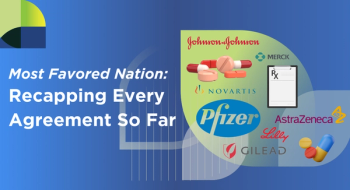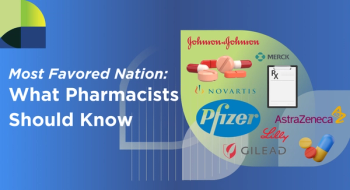
- December 2014 Heart Health
- Volume 80
- Issue 12
10 Things That Could Change Pharmacy Practice
I want to discuss 10 changes that could alter the profession of pharmacy. Some of these changes are already taking place, while others are just starting to be discussed.
Oversupply of Pharmacists
At the current graduation rate and with new schools starting, it has been suggested that 20% of pharmacists will be without a job by 2018. This will cause the applicant pool to drop and the closing of some pharmacy schools by 2025. Right now, many pharmacy graduates are taking less desirable positions. In some areas, pharmacists’ salaries are decreasing. Although a lower salary may make pharmacists more competitive with nurse practitioners and physician assistants, it will reduce the attractiveness of the profession to candidates.
Pharmacist Provider Status
If the current campaign to obtain provider status for pharmacists is successful, more pharmacists will be employed by medical groups to develop disease-management programs. This new opportunity will help alleviate the oversupply of pharmacists and solidify the importance of the pharmacist on the health care team.
Focus on Care Transitions
Because patients transitioning from one care setting to another are more vulnerable, many settings are focused on improvement. Too often, these transitions are only using resources within the system. A few studies have shown that community pharmacists are a valuable ally for reducing the risks associated with transitions, especially those back to the home.
Point-of-Care Testing
Community pharmacies are already transitioning into neighborhood health centers (NHCs). The expansion of point-of-care testing will allow NHCs to do more diagnostic work with focused treatments that will improve quality and cost of care. NHCs will use more pharmacists in a clinical role.
Closed Pharmacy Networks
If closed pharmacy networks continue to expand and become more acceptable to patients and payers, it could cause the closure of some community pharmacies. This will be detrimental to communities, pharmacists’ jobs, and patient access.
Health-System Consolidations
Hospitals are morphing into health systems, buying up more facilities and practices. If this continues, pharmacy positions will be eliminated. A large health system that wants to provide comprehensive cradle-to-grave health care as well as drugs will be a tough competitor for community pharmacies.
Prescription Filling Reimbursement
How health care services are reimbursed is being reevaluated to include bundled payments or outcomes achieved. If and when drug dispensing is paid for based on outcomes achieved rather than processes performed, how pharmacists bill will change dramatically. The STAR rating system has already caused some of these changes. Monitoring drugs’ effects will become a requirement, making new pharmacy graduates more desirable employees because their training will be up-to-date.
Expanded Role of the Pharmacy Technician
As the Pharmacy Technician Certification Board (PTCB) implements its position that after 2018 only pharmacy technicians (PTs) who have completed an accredited technician training program will be eligible to sit for the examination, there will be more pressure to expand the PT’s role. For example, if a PT could handle all refill prescription filling independently, it could give pharmacists more time for clinical functions. Unless pharmacists get reimbursed for these roles, however, an expanded PT role will place more pressure on pharmacists. This may cause pharmacists to turn against PTs and the PTCB.
More Biosimilars
Generic drugs have been beneficial to health care by keeping drug costs down. Pharmacy has benefited as well because reimbursement for filling generic prescriptions is often higher. If the FDA allows more biosimilars into the US market, the results will be similar: pharmacy will derive a financial benefit, and payers will save money. This could help some community pharmacies.
Pharmacogenomics
A person’s genetic makeup can affect how a drug works. As personalized medication management becomes more emphasized, pharmacists will have the opportunity to play an important role. Pharmacists may compound individualized dosage forms for specific patients based on genetic makeup.
Mr. Eckel is a professor emeritus at the Eshelman School of Pharmacy, University of North Carolina at Chapel Hill. He is emeritus executive director of the North Carolina Association of Pharmacists. A lifelong advocate for the profession of pharmacy, Mr. Eckel has lectured on pharmacy issues and trends in all 50 states and has traveled to 6 continents to promote, and educate audiences on, the role of the pharmacist.
Articles in this issue
about 11 years ago
Cyber Supply Chain Security: A Concern for the Pharmaceutical Industryabout 11 years ago
Can You Read These Rxs? (December 2014)about 11 years ago
Case Studies (December 2014)about 11 years ago
Pet Peeves (December 2014)about 11 years ago
Reaching the Community Through Leadershipabout 11 years ago
Living with Atrial Fibrillationabout 11 years ago
Long Work Hours May Increase Diabetes Riskabout 11 years ago
Weight Loss Surgery Cuts T2DM Riskabout 11 years ago
Low-Carb Diet Improves Risk Factors for Type 2 Diabetes PatientsNewsletter
Stay informed on drug updates, treatment guidelines, and pharmacy practice trends—subscribe to Pharmacy Times for weekly clinical insights.


























